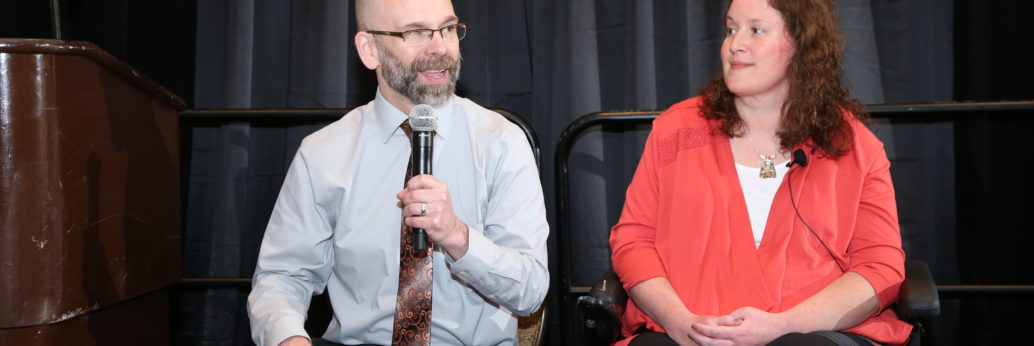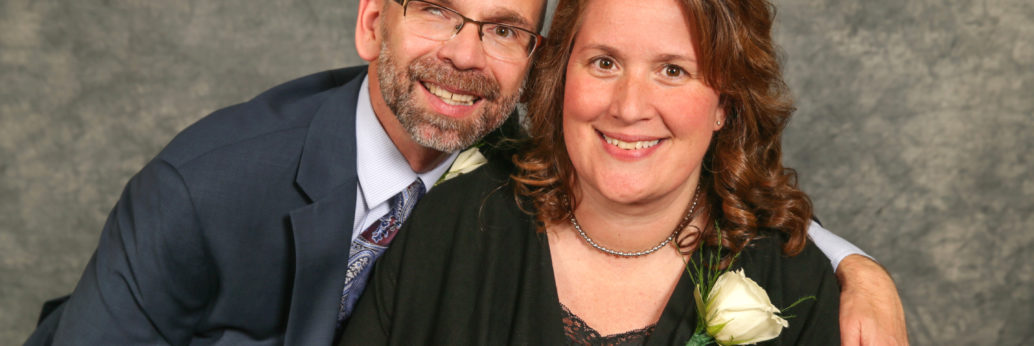It’s a world of laughter, a world of tears
It’s a world of hopes and a world of fears
There’s so much that we share that it’s time we’re aware
It’s a small world after all
Be honest, how long did it take before you joined in singing this Disney classic?

It’s infectious and I have always cherished my memories of the trips I’ve taken my parents and brother to Walt Disney World. Yes, most of these trips were taken when I was a child; i.e. before my life with Multiple Sclerosis began. Following my diagnosis, I still was able to enjoy taking a trip there, and that was even after I became fully dependant on my wheelchair.
A few years ago with my family and me, Dan visited Disney’s Magic Kingdom for the first time. We all watched as the theme park’s fireworks display illuminated the Orlando skyline, and I could not contain the joy I felt sharing in that moment with him.
Sure, I may be a sentimental cheese about Mickey and company. Perhaps I may even be naïve and idealistic, but Disney World always has been a place where the realities and ugliness of the world were not present. Once you walked into that fairy tale, the real world stopped and enchantment began.
That is why when earlier this year a scandal broke out involving Disney theme parks and disabled guests, I was so, well, disenchanted. It was reported that there were touring companies offering handicap tour guides for hire. The purpose of these guides was so that those willing to pay would have a way to immediately skip the required lines for an attraction by taking advantage of a free pass intended for disabled guests and their families.
Yes, there were people who would pay a person with a disability so that his or her able-bodied self wouldn’t have to stand in line.
Hearing that left me conflicted. On one hand I angrily wondered, “How lazy and spoiled can you be?” After all, I would give just about anything to be able to just stand on my own two feet, no matter the length of the line. And if you could stand, why wouldn’t you? I also wondered if this theme park was meant for children, what message did that send to them about people with disabilities? That we can be bought? Or that our only value is that we can help you avoid waiting in line? But on the other hand I thought, “Good for that disabled person. Why shouldn’t he or she be able to profit from their situation?”
But what do you think? Am I wasting my time wondering and thinking about this? A while back Dan asked a question a la ABC’s John Quinones TV show, “What Would You Do?”. And now I’m curious, what about you? Would you think nothing of being a disabled tour guide? Or would you pay someone so you could skip the line?

Honestly, I won’t judge. Truthfully I won’t. I can remember waiting in those hot, sweaty days to ride Space Mountain for what felt like forever, and I’m not sure that I wouldn’t have paid someone to skip those long lines. As awful as that sounds.
However, Disney has reacted and leveled the playing field. The company has opted to end the current program and institute a new one beginning October 9th in which a pass will be given to disabled guests that allows them to reserve a time to return, similar to the current FASTPASS wait system. But the wait time will be significantly shorter than a typical FASTPASS time.
Even with that concession, there still are those people who are outraged that they can no longer get special privileges because of their disability. But for as much as some people with disabilities say they want to be treated just like everyone else, I wonder is this change really all that bad?





It is about time someone figured out how to ruin a good thing.
As a frequent visitor to Disney, I always felt guilty as everyone in my party was allowed to skip the line because of me & my chair. (A wonderful perk of being in the seated position)
Would I be a paid tour guide? The thought of being able to financially contribute to my family is attractive!
Maybe!
Hey My Odd Sock, I am surprised that it took so long to ruin this good thing. But after reading the link Michael mentioned, it looks like Disney will continue to accommodate guests with disabilities. Yay, I can almost hear the Electrical Parade music from here 🙂
You know that I love the 2 of you and I love the fact that you have written about this. Like you, I was very upset when I heard about this. We live only about 35–40 min. away from Disneyland and it has always been a big part of our lives. Until just a few years ago it was not uncommon for us to go there once or twice a year. But today I must confess that we have not been there for a few years…. but that does not mean that I was not upset by this policy.
Because of your article I went to their website and read the new policy (http://visit.disneylandparis.co.uk/disabled-visitors/disabled-visitors-general-information.xhtml) You know what? It is not all bad. In fact, I wish that it were more difficult to get a parking placard because I know that many of those spaces are filled by able bodied people.
Disney now offers a reduced price tickets to those with a “certified disability” and a free ticket to their caregiver. Plus we can get priority for access to rides. No, we can no longer bring all of our friends. But we can bring our caregiver or mate into those shorter lines.
Without question the benefits that went to those of us in wheelchairs were abused by many who did not need it. I have to applaud Disney for attempting to address this issue.
For the past several years I have said “there are 2 places that everyone wants to go with me. Disneyland and airports.” Now one of these must be crossed off that list.
Thank you again for bringing this up.
Michael
Thanks for your comment, Michael. I agree with you that Disney’s new policy isn’t bad at all. It seems very reasonable. Hopefully, Dan and I will learn more about it first hand fairly soon 😉
I also agree about the parking placards, but I know appearances can be deceiving. I remember back when I still was able to walk, I would merrily stride into a store and almost need a forklift to help get back to my car a few hours of shopping later. I certainly don’t wish that on anyone, but remembering that kind of keeps my temper in check.
My university class just discussed a book which tackles precisely this question. The book is What Money Can’t Buy, Michael J. Sandel in which the suthor takes on the ethical question: Is there something wrong with a world in which everything is for sale? If so, how can we prevent market values from reaching into spheres of life where they don’t belong? What are the moral limits of markets?
Here is the Amazon link: http://www.amazon.com/What-Money-Cant-Buy-Markets/dp/0374203032/ref=sr_1_1?s=books&ie=UTF8&qid=1381060913&sr=1-1&keywords=what+money+can%27t+buy+michael+sandel
The book is overly wordy, but tackles head on, among other things, the question of people using surrogates for placing in line. You might find it interesting since this is the subject of your post.
Thanks for the link, Judy! This book looks interesting, especially the ethical issue about paying people to test medications. I’ll look into it.